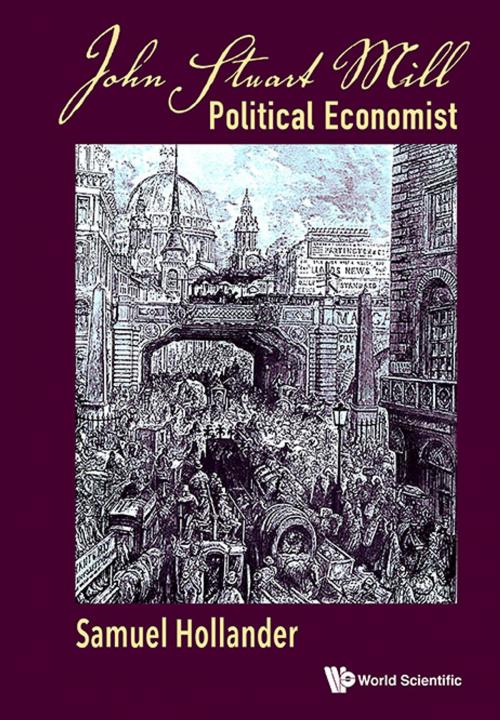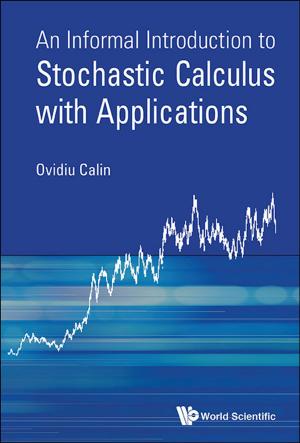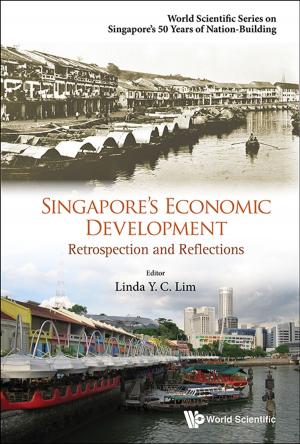John Stuart Mill
Political Economist
Nonfiction, Social & Cultural Studies, Political Science, Politics, Economic Conditions, Business & Finance, Economics, Economic History| Author: | Samuel Hollander | ISBN: | 9789814663991 |
| Publisher: | World Scientific Publishing Company | Publication: | March 13, 2015 |
| Imprint: | WSPC | Language: | English |
| Author: | Samuel Hollander |
| ISBN: | 9789814663991 |
| Publisher: | World Scientific Publishing Company |
| Publication: | March 13, 2015 |
| Imprint: | WSPC |
| Language: | English |
John Stuart Mill: Political Economist is a revised version of the part of Samuel Hollander's The Economics of John Stuart Mill (1985) treating the theory of economic policy. In this book, Professor Hollander offers a critical yet sympathetic analysis of Mill's quest to accomplish thorough reform of capitalism in the interest of distributive justice while protecting the security of property and contemplating the potential evolution of capitalism into cooperative organization. Part I of the book serves as an introduction to the investigation of Mill's theory of economic policy; Parts II and III include Mill's primary policy recommendations; while Part IV adds a substantial "Overview and Evaluation" reviewing the author's main conclusions. A major concern is Mill's perception of the composition of the "greatest number" whose interests are to be considered by policy-makers; here arises his attitude towards British Imperialism. The author then undertakes thematic comparisons between the positions of Mill and those of Smith, Ricardo, Malthus, Marx and Bernstein; and closes with a rejection of the celebrated criticism of Mill's "liberalism" by Friedrich Hayek.
Contents:
-
Prolegomena:
- Economic Theory and Policy
- The 'Greatest Happiness' Principle
-
Social Organization:
- Social Organization
-
Public Policy:
- The Market and the State
- Welfare
- Property Rights, Land Reform, and Public Finance
- Stabilization
-
Overview and Evaluation:
- The Utilitarian Maximand I: Value Judgments
- The Utilitarian Maximand II: On Imperialism and Related Issues
- The Intellectual Context I: Thematic Comparisons
- The Intellectual Context II: Hayek and Mill
-
Appendices:
- An Exercise in Deductive Method: Agricultural Protection
- Administrative Recommendations: Public Health and Poor Relief
- On the Education Act 1870: The Denominational Problem
- Hayekian Interventionism Elaborated and Mill Parallels
Readership: Academics and advanced students in history of economics, history of political thought, political economy, political theory, moral and political philosophy, and policy studies.
Key Features:
- A comprehensive study of Mill's theory of economic policy providing insights into his views on the primary dilemmas of the modern liberal state
- Offers new insights into the Mill–Adam Smith and Mill–Karl Marx relationships
- An indispensable book for evaluating Friedrich Hayek's lament that Mill undermined "liberalism" and also sundry charges of bourgeois bias, elitism, paternalism, social engineering and even hypocrisy
John Stuart Mill: Political Economist is a revised version of the part of Samuel Hollander's The Economics of John Stuart Mill (1985) treating the theory of economic policy. In this book, Professor Hollander offers a critical yet sympathetic analysis of Mill's quest to accomplish thorough reform of capitalism in the interest of distributive justice while protecting the security of property and contemplating the potential evolution of capitalism into cooperative organization. Part I of the book serves as an introduction to the investigation of Mill's theory of economic policy; Parts II and III include Mill's primary policy recommendations; while Part IV adds a substantial "Overview and Evaluation" reviewing the author's main conclusions. A major concern is Mill's perception of the composition of the "greatest number" whose interests are to be considered by policy-makers; here arises his attitude towards British Imperialism. The author then undertakes thematic comparisons between the positions of Mill and those of Smith, Ricardo, Malthus, Marx and Bernstein; and closes with a rejection of the celebrated criticism of Mill's "liberalism" by Friedrich Hayek.
Contents:
-
Prolegomena:
- Economic Theory and Policy
- The 'Greatest Happiness' Principle
-
Social Organization:
- Social Organization
-
Public Policy:
- The Market and the State
- Welfare
- Property Rights, Land Reform, and Public Finance
- Stabilization
-
Overview and Evaluation:
- The Utilitarian Maximand I: Value Judgments
- The Utilitarian Maximand II: On Imperialism and Related Issues
- The Intellectual Context I: Thematic Comparisons
- The Intellectual Context II: Hayek and Mill
-
Appendices:
- An Exercise in Deductive Method: Agricultural Protection
- Administrative Recommendations: Public Health and Poor Relief
- On the Education Act 1870: The Denominational Problem
- Hayekian Interventionism Elaborated and Mill Parallels
Readership: Academics and advanced students in history of economics, history of political thought, political economy, political theory, moral and political philosophy, and policy studies.
Key Features:
- A comprehensive study of Mill's theory of economic policy providing insights into his views on the primary dilemmas of the modern liberal state
- Offers new insights into the Mill–Adam Smith and Mill–Karl Marx relationships
- An indispensable book for evaluating Friedrich Hayek's lament that Mill undermined "liberalism" and also sundry charges of bourgeois bias, elitism, paternalism, social engineering and even hypocrisy















